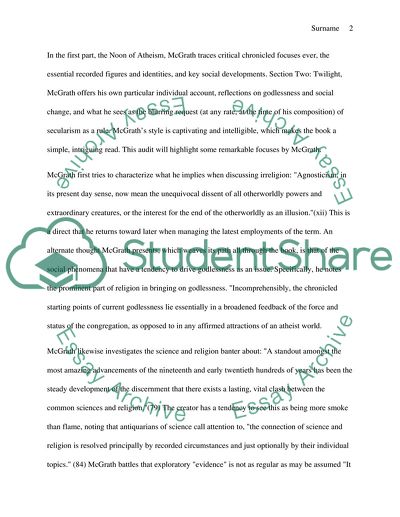Cite this document
(Analysis of The Twilight of Atheism by Alister McGrath Book Report/Review, n.d.)
Analysis of The Twilight of Atheism by Alister McGrath Book Report/Review. Retrieved from https://studentshare.org/religion-and-theology/1851525-write-a-book-report-on-the-book-the-twilight-of-atheism-by-alister-mcgrath-any-paperback-edition
Analysis of The Twilight of Atheism by Alister McGrath Book Report/Review. Retrieved from https://studentshare.org/religion-and-theology/1851525-write-a-book-report-on-the-book-the-twilight-of-atheism-by-alister-mcgrath-any-paperback-edition
(Analysis of The Twilight of Atheism by Alister McGrath Book Report/Review)
Analysis of The Twilight of Atheism by Alister McGrath Book Report/Review. https://studentshare.org/religion-and-theology/1851525-write-a-book-report-on-the-book-the-twilight-of-atheism-by-alister-mcgrath-any-paperback-edition.
Analysis of The Twilight of Atheism by Alister McGrath Book Report/Review. https://studentshare.org/religion-and-theology/1851525-write-a-book-report-on-the-book-the-twilight-of-atheism-by-alister-mcgrath-any-paperback-edition.
“Analysis of The Twilight of Atheism by Alister McGrath Book Report/Review”, n.d. https://studentshare.org/religion-and-theology/1851525-write-a-book-report-on-the-book-the-twilight-of-atheism-by-alister-mcgrath-any-paperback-edition.


